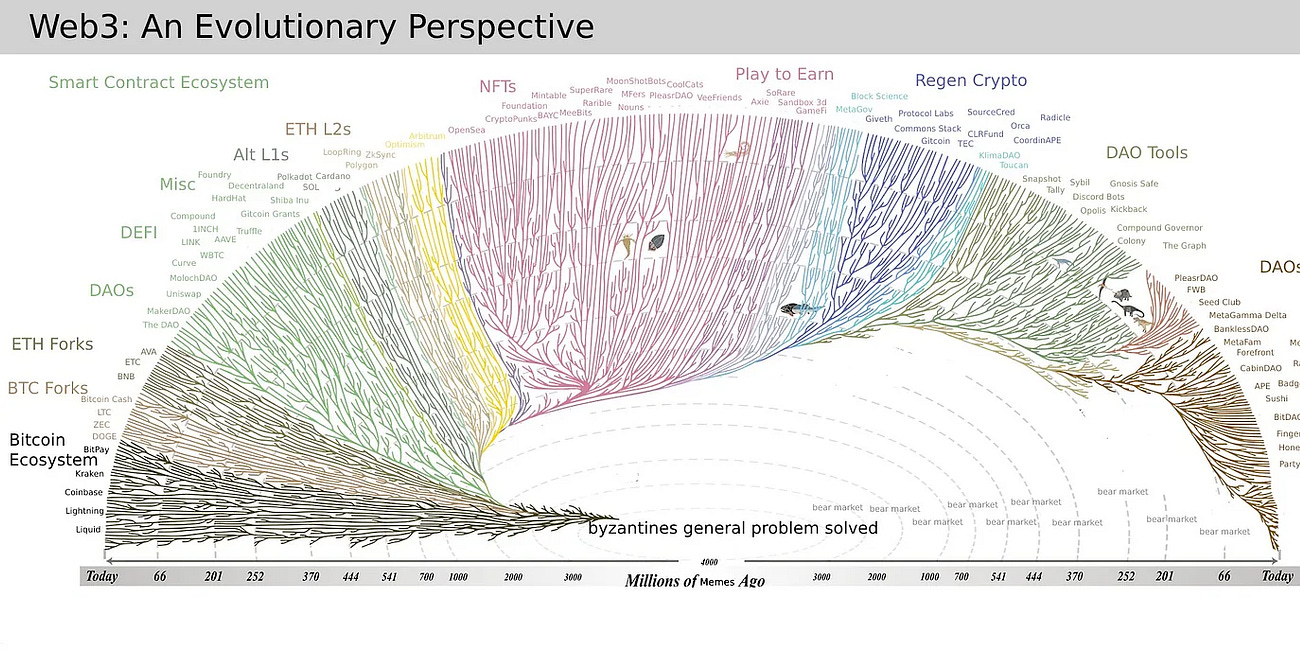Best of System Explorers: Part Two
Last week I shared three of my favorite pieces of writing for System Explorers from this year. This week I’d like to share three more.
In The Value of Cryptoeconomic Systems, I explained my choice to examine how principles of systems science apply to cryptoeconomic systems. I emphasized four qualities that make public blockchains useful as tools for society and as objects of study for systems scientists: permissionlessness, transparency, open-source, and programmability.
The Value of Cryptoeconomic Systems
To illustrate the next seven principles of systems science I’m going to focus on how they manifest within cryptoeconomic systems. Why focus on crypto? Four reasons: It’s the subject in which I’ve accumulated the most knowledge and expertise. Cryptoeconomic systems, which serve as
In Back to School, I made a connection between my decision to pursue a Master’s in Systems Science and my journey towards finding my Ikigai — the intersection of what I love, what I’m good at, what I can be paid for, and what the world needs.
Back to School
After a decade spent outside the halls of academia, I’m officially back in school. I’m pursuing a M.S. in Systems Science at Binghamton University in New York. I’d like to share a bit about my motivation, how I’m thinking about research, and how this will influence the future direction of system explorers.
In Evolution, I examined some of the important ways in which cryptoeconomic systems have evolved over time and highlighted several key evolutionary forces that will shape their future: adaptation, mutation, selection, emergence, competition, cooperation, and coordination.
Evolution
The sixth principle of systems science states that systems evolve. Let’s take a look at some of the key aspects of evolution by exploring the ways in which cryptoeconomic systems have evolved over time and some of the important forces that will shape their future evolution.






